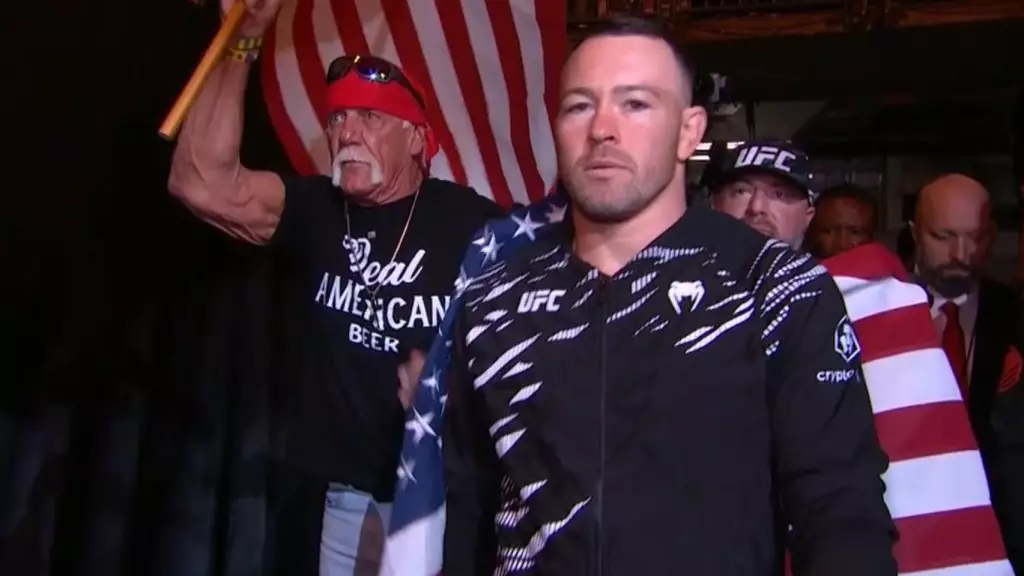In a remarkable intersection of sports entertainment, Colby Covington, a prominent figure in the world of mixed martial arts, orchestrated an unforgettable entrance for his fight at UFC on ESPN 63. The anticipation surrounding his walkout culminated in the surprise appearance of none other than WWE icon Hulk Hogan. This collaboration not only amplified the excitement of the event but also showcased the growing overlap between the worlds of MMA and professional wrestling.
Covington’s decision to switch his walkout song from Kurt Angle’s iconic theme to Hogan’s “Real American,” made famous by Rick Derringer, resonated deeply with fans on social media. The walkout song choice served as an homage to the larger-than-life personas that characterize both the wrestling and MMA communities. Furthermore, Hogan’s presence at Covington’s side as they made their way to the octagon was a powerful visual statement, drawing an enthusiastic response from the crowd in Tampa, Florida. The complementary blend of Covington’s brash, confrontational style and Hogan’s wholesome heroism created an electric atmosphere.
This collaboration was not merely a coincidence born out of entertainment; it was rooted in a shared political ideology. Both Covington and Hogan are well-known supporters of former President Donald Trump. Their alliance during the 2024 presidential election cycle might have deepened their connection, influencing Covington’s choice of walkout companion. This strategic move cleverly utilized the political climate and fanbase dynamics, allowing both personalities to resonate with like-minded supporters while maximally engaging a diverse audience.
The fusion of MMA and wrestling that Covington and Hogan represented raises intriguing questions about the future of both sports. As more fighters seek to capitalize on wrestling’s established entertainment model, this trend may lead to increased crossover appeal. Fans of both worlds stand to benefit from these collaborations, potentially drawing larger crowds and extending the fan base for bouts—especially when such showmanship accompanies high-stakes match-ups. Covington’s antics, combined with Hogan’s storied legacy, potentially pave the way for other fighters to embrace a more theatrical approach, further blurring the lines between sport and entertainment.
Covington’s entrance at UFC on ESPN 63 represents more than just a creative walkout; it is indicative of a broader change in how athletes approach public engagement and entertainment. By aligning himself with a wrestling legend, Covington not only created a spectacle for the audience but also tapped into the emotional resonance of sports entertainment. As the boundaries between professional wrestling and mixed martial arts continue to dissolve, fans can expect to witness more unforgettable moments that elevate the sport’s entertainment value. The implications of such collaborations promise an intriguing future for athletes, fans, and the industry as a whole.

